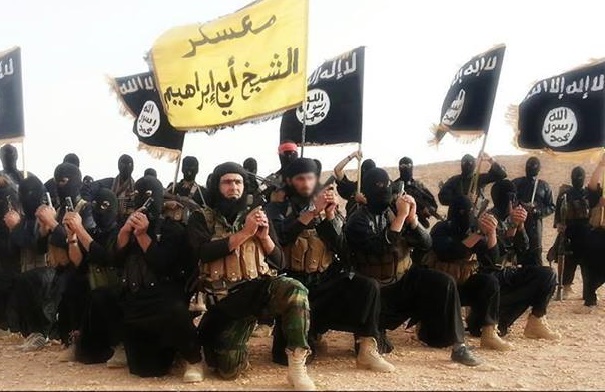
The response to last week’s horrendous attacks by Islamic State, from Tunisia to Kuwait to Kobane, have taken a strange turn towards what, exactly we should be calling the organisation that carried them out.
David Cameron got shirty with the BBC for using the term “Islamic State”, insisting it should instead be called “ISIL”. This seems silly: ISIL, as any fule kno, stands for Islamic State in Iraq and the Levant.
The other alternative suggested is Daesh. This, as Nick Cohen points out at the Spectator, bears the advantage of reminding Arabic speakers of the phrase Daes (‘one who crushes something underfoot’) and Dahes (‘one who sows discord’). But it still essentially means the same as ISIL, being an acronym of al-Dawla al-Islamiya fil-Iraq wa al-Sham.
So what’s the politicians’ point? The first is squeamishness about the “Islamic” part: Cameron and co have been keen to stress that Islamic State is not, as they see it, “true Islam”. This is a well-meaning but ultimately dangerous game: For starters, no one individual is in a position to say what is and isn’t Islam: Cameron is no more in a position to say what is and isn’t Islamic than I am to judge whether Neturei Karta practice true Judaism, or the Westboro Baptist Church are really Christian, or which of the seven billion socialist microparties in the UK are the true heirs of Marx and Engels. All these things are matters of interpretation, and only the most zealous imagine otherwise.
But one understands the impulse. One does not want to alienate ordinary Muslims by declaring that something Islamic is an existential threat. So one suggests it is not Islamic.
The other issue is the legitimacy implied by the term “state”. This would take a horde lawyers and diplomats to wade through, but there do seem to be, to use a popular phrase in the region, “facts on the ground”. In an article published in December 2014, German journalist Jürgen Todenhöfer, who spent time in Islamic-State controlled Mosul, observed:
As far as I can tell from 10 days of observation, the “Islamic State” seems to function as well as any other totalitarian country in the region. This is particularly true in terms of internal security and social welfare; while many things differ greatly from our – or particularly my – ideas on how such institutions should be run, they do exist. The Sunni population living in the Iraqi part of the Islamic State seems to now have accepted the new state without further resistance, preferring it to the discrimination and oppression they had previously suffered from the Maliki regime in Bagdad [sic]. However, after all of the Christians, Shiites and Yazidis have fled the city, and after countless executions, they are now the only religious group inhabiting Mosul.
Islamic State, then, is a thing.
But there is perhaps another reason Cameron would prefer ISIL to Islamic State: that being the implied, or sometimes expresses, definite article. Unless one wants to get into into very serious Takfiri territory, it is undeniable that Islamic State is in some way Islamic and in some way a state. But Abu Bakr al-Baghdadi and his cohorts do not want to be an Islamic State (as suggested by the geographical designation): they claim to be the Islamic State: the Caliphate. This claim is made partly because Baghdadi is an apocalyptic megalomaniac, and partly to tempt followers.
Not everyone who goes to live in Raqqa or Mosul or any of the territory controlled by Islamic State is going there to fight: families are going there to live in what they might genuinely believe to be the most Sharia-led place on Earth: a place where Islam is properly practiced and properly practicing Muslims are free.
In this, they are not like, as is often said, American and British young men and women who went to fight in the Spanish Civil War, but more like American workers who went to live in the Soviet Union in the 1920s and 30s.
So is it to go along with al-Baghdadi’s wish, and his propaganda, to say “Islamic State”? It may seem a moot argument, but then think: many of us still refuse to refer to Burma as “Myanmar” – the junta’s preferred name: similarly, some resisted the Khmer Rouge’s “Kampuchea”, and stuck with Cambodia. There is precedent in these gestures of denying legitimacy by refusing to accept the new nomenclature.
Of course, neither of those regimes went into decline because of naming issues, but that does not mean that resistance to the tyrants’ rebrands was entirely futile. We call people, and things, their preferred titles out of respect. If we do not respect them, or actively abhor them, there is a case for not playing along. Perhaps David Cameron has a point.